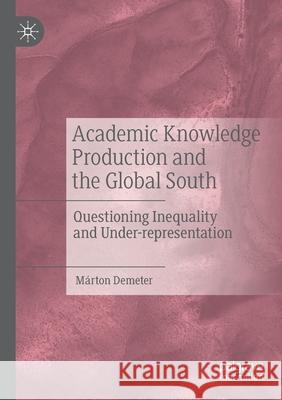Academic Knowledge Production and the Global South: Questioning Inequality and Under-Representation » książka
topmenu
Academic Knowledge Production and the Global South: Questioning Inequality and Under-Representation
ISBN-13: 9783030527037 / Angielski / Miękka / 2021 / 216 str.
Academic Knowledge Production and the Global South: Questioning Inequality and Under-Representation
ISBN-13: 9783030527037 / Angielski / Miękka / 2021 / 216 str.
cena 402,53
(netto: 383,36 VAT: 5%)
Najniższa cena z 30 dni: 385,52
(netto: 383,36 VAT: 5%)
Najniższa cena z 30 dni: 385,52
Termin realizacji zamówienia:
ok. 16-18 dni roboczych.
ok. 16-18 dni roboczych.
Darmowa dostawa!
Kategorie:
Kategorie BISAC:
Wydawca:
Springer Nature Switzerland AG
Język:
Angielski
ISBN-13:
9783030527037
Rok wydania:
2021
Ilość stron:
216
Waga:
0.26 kg
Wymiary:
21.01 x 14.81 x 1.17
Oprawa:
Miękka
Wolumenów:
01
Dodatkowe informacje:
Wydanie ilustrowane











